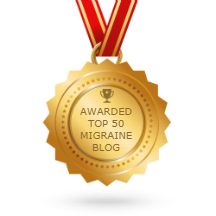How to Explain Migraines to Outsiders: Guest Blog by the Migraine Relief Center
By Dr. Mark Khorsandi
Nobody can argue with a broken arm or a limp. Physical injuries offer proof of a person’s pain and suffering. Migraine pain, however, is not always so visible. When patients come to me, many of them are tired of the endless questions, disbelief, and frustration that they encounter from others.
In many ways, defending the experience of migraine pain is just as difficult as coping with the condition itself. Knowing how to explain your migraine pain can take away some of the stress and stigma associated with a migraine diagnosis.
Explaining How Migraine Attacks Feel
Someone who has never experienced the gut-wrenching, cognition-distorting pain of a migraine attack may have difficulty understanding how people with migraines feel. To non-sufferers, a migraine may not seem much worse than the average passing headache.
When you need to explain how you feel to justify your actions or receive support, use the following tips from other migraine sufferers:
· Avoid assuming people act from a place of understanding. Let the people around you know about your migraines and how they affect your life to reduce the likelihood of an unfair bias.
· Plan the discussion for a time when you feel well. Migraines can distort thoughts and make communication more difficult. Talk to people about your situation when you feel well to accurately describe your pain.
· Describe the pain. Use descriptions and images to help others understand your pain. Analogies are particularly helpful for this process. Go beyond your feelings to the impact of a migraine on daily life. Discuss associated symptoms, your coping mechanisms, the average duration of your own migraines, and warning signs.
Explain how pain levels vary, the frustration of never knowing how long you will feel well, what you cannot safely do while in pain, and what you do to manage your condition. People often feel more sympathetic to those actively working to control chronic pain.
Communicating with Coworkers
If colleagues and supervisors do not know about or understand your condition, they may treat a migraine sufferer unfairly during times of pain. Always disclose your migraine suffering to at least your primary manager or supervisor. If necessary, ask your doctor to write a short letter explaining the diagnosis and your needs.
Try to proactively discuss your condition and possible work impacts, including missed work, workplace accommodations (such as a dark office for rest), and accommodations that may reduce the onset of migraines – e.g., the ability to take short breaks throughout the day, to eat and drink frequently, or to work in a noise-, scent-, or light-reduced environment.
Communicating with Friends, Family Members, and Loved Ones
Away from the office, each member of your family and support network should understand your struggle with migraines and your needs. Develop an inclusive strategy everyone can understand and appreciate. Let people know ahead of time what does and does not help you during an attack and the warning signs that may take you away from social and familial activities. Understanding and planning can go a long way to prevent hurt feelings and give a migraine sufferer the space he or she needs to recover from an attack.
Responding to Others’ Questions and Comments
Prepare for and encourage questions during each discussion with coworkers, friends, and family members. Those who do not know the pain of a migraine may ask questions that seem obvious or unimportant to you, but they will go a long way to help another’s understanding. People may bring up treatment ideas, ask you about psychological counseling, claim they get headaches too, or discount your experience. You may answer the same question repeatedly. Offer others resources about your condition and try to brush off insensitive comments.
Crucial Migraine Statistics
In the United States alone, over 37 million residents experience migraines. Of those, 2–3 million struggle with chronic migraine pain. Around 91% of migraine sufferers lose normal functioning during an attack and must miss out on work and social activities. A quarter of sufferers experience attacks on a weekly basis and many will go to the emergency room due to the severity of pain and secondary symptoms (dehydration due to vomiting, loss of consciousness, or other physical issues).
Many reactions to migraine pain come from a place of ignorance. When my patients learn how to discuss their condition with others, they often find new and successful ways of coping both at work and at home. Statistics, studies, and personal experience do not lie. Migraines are real, they can be devastating, and they deserve understanding and a reasonable level of empathy. Use this information to talk about your own experiences and needs with others, and begin to take back the control that migraines so often steal from chronic sufferers.
About the Author
Dr. Mark Khorsandi works at the Migraine Relief Center. They provide surgical treatments that reduce and eliminate pain for migraine sufferers. Dr. Khorsandi treats patients in Dallas-Fort Worth and Houston. His high ratings by patients earned him the 2015 Patient’s Choice Award.









3 comments: